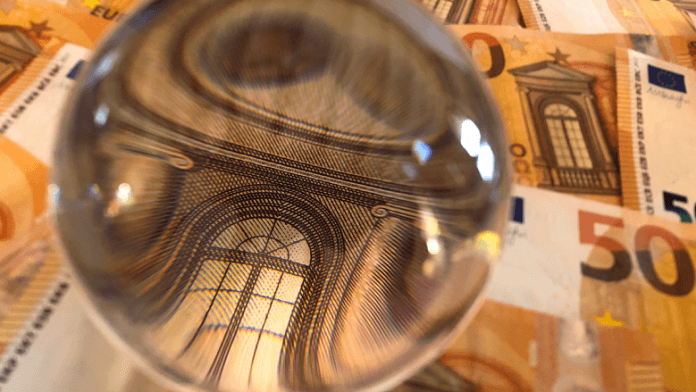- Pound (GBP) trades mixed versus peers
- BoE rate decision on Thursday eyed
- Euro (EUR) weakens on rising covid & poor vaccine rollout
- Eurozone inflation data in focus
The Pound Euro (GBP/EUR) exchange rate is . The pair settled +0.2% at €1.1668, towards the high of the day. At 05:15 UTC, GBP/EUR is holding steady and trades 3 pips lower at €1.1665.
The Pound traded higher versus the Euro bur was mixed versus its major peers on Tuesday after Bank of England Governor Andrew Bailey commented that the central bank would continue buying up bonds at an elevated pace. His cautious tone on the UK economic recovery dented demand for sterling.
His comments come even as the UK’s vaccine rollout appears to be working, covid cases fall and the UK economy appear on track for reopening.
There is no high impacting UK data for Pound traders to digest on Wednesday. Instead, attention will turn to the Bank of England monetary policy announcement on Thursday.
The central bank is not expected to adjust monetary policy.
The Euro came under pressure in the previous session as the covid situation worsened in Europe and despite upbeat sentiment data.
According to the latest ZEW survey, German investor sentiment picked up in March. The headline figure revealed that investor expectations rose to 76.6, from 71.2 in February. This was well ahead of forecasts of 74. The data shows that economic confidence continues to rise, even as the covid situation deteriorates and amid a slow vaccine rollout programme.
France, Germany and Italy are experiencing a third wave of covid infections which threatens to extend lockdown conditions. This comes as the vaccine programme in the region has faced any hurdles.
Whilst a growing number of countries in the EU have suspended the use of the AstraZenca vaccine over health concerns, the European regulator has once again given the all clear in a preliminary statement today.
So far just 8% of adults in the EU have received a vaccination, compared to a third of UK adults.
Looking ahead Eurozone inflation data for February will be in focus. Analysts expect consumer prices to rise 0.2% month on month.





